Paul Mensah, a Ghanaian resident in the U.S., led a team of Pfizer scientists, engineers, and technicians to develop a vaccine to combat the coronavirus across the world.
Mr Mensah is a chemical engineer and vice president of the Bioprocess Research and Development Group at Pfizer in St. Louis.
He was responsible for developing and manufacturing the vaccine’s DNA starting material and the messenger RNA drug substance that ultimately becomes the vaccine.
Mensah seeks to boost public confidence about the vaccine to people in Black and Brown communities.
Who is Paul Mensah?
Paul Mensah joined Pfizer in 1999.
Before his current role, Paul led the Culture Process Development group in Bioprocess R&D, which is responsible for the development, characterization, transfer, and scale-up of cell culture and fermentation processes from the regulatory toxicology stage through to licensure.
In 2017, Mensah was named vice president for bioprocess research and development and drug supply in Biotherapeutics Pharmaceutical Sciences at Pfizer Inc.
Based in St. Louis, he also leads the group’s sites in Massachusetts, North Carolina and New York. A key responsibility is overseeing the development of innovative processes for manufacturing Pfizer’s growing portfolio of biotherapeutics, including gene therapy and vaccines.
In the early part of his career, Paul held roles in the Purification Process Development group and has led teams for several biotherapeutics, helping to steer them through clinical development, from Phase 1 through Phase 3.
He also served as a Research Project Leader for an asset in the Rare Disease Research Unit.
Paul is trained as a Chemical Engineer with degrees from Cornell University (B.S.) and the University of Virginia (PhD). He is a member of the American Institute of Chemical Engineers and the Society of Biological Engineers.
He is also a diversity leader through his service on the Pfizer Global Blacks Council.
Mensah is a member of the American Institute of Chemical Engineers, American Chemical Society and the Society of Biological Engineers.
In an interview with St. Louis Public Radio, Paul Mensah talks about the importance of getting vaccinated against the coronavirus disease, COVID-19.
This interview has been edited for length and clarity and produced below.
Marissanne Lewis-Thompson: When you learned the Pfizer vaccine was effective, what was your initial reaction to that?
Paul Mensah: I was just ecstatic and relieved. We’ve had a team of people who have been working nonstop on this product. And when you work on these things, you never know if it’s going to work. And we never expected that it would be 95% effective. . ..You want to work on things that are impactful. But the impact of this one is especially significant because it’s not just a small patient. The whole world — the whole world — is a patient.
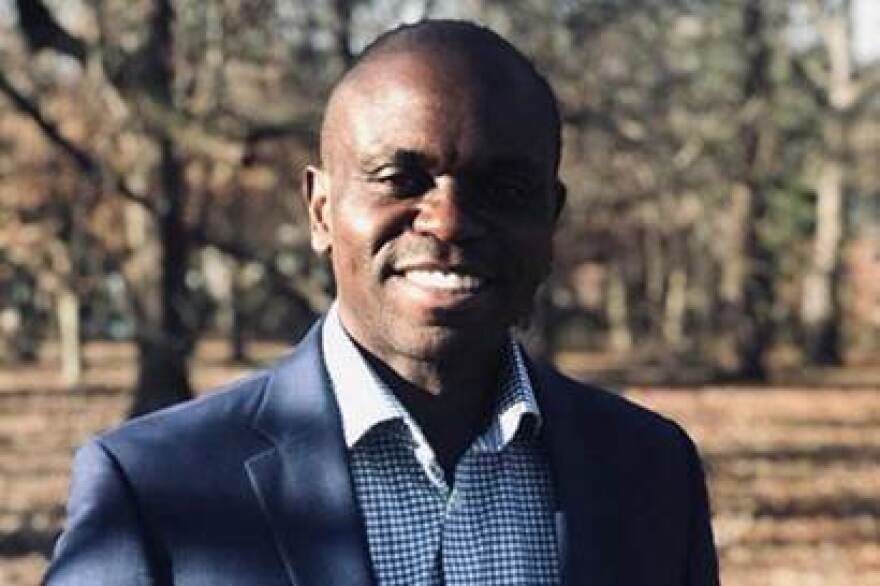
Lewis-Thompson: There has been a lot of distrust from Black people about this vaccine and whether they should get it. How do you hope your involvement in developing the vaccine will help ease those concerns?
Mensah: The history of clinical testing with Black folks in particular, the Tuskegee experiment, I think it’s a good reason why Black people have been skeptical about vaccines and pharmaceutical companies in general. But I think, you know, since that experiment and over time, I think there have been significant improvements in that process. And there’s been lots of work that has been put in place such that those types of experiments will not happen again. What I can say is that you know, it started with the clinical trials, right. As part of that trial, Pfizer really made a huge effort to try to recruit as many Black people as possible as part of the trial. And I believe at last count; we were almost 10% of Black folks in the clinical trial, which is really important. What I can say is that you know, at least for me, working at a company like Pfizer and being a part of the team that really developed this product, I have every confidence in it. Right? I have personally taken it, and I’m doing fine.
The reality is, Black people are more impacted by this than any other group. And so, the only way we get out of this is through vaccination. I was just reading the news that the life expectancy for Black people is down by 2.7% from 2019 to 2020. And a big part of it is because of the COVID-19 disease. And so the only way— the only way — we get out of this is through vaccination.
Lewis-Thompson: What needs to happen in order to make the vaccination process more efficient?
Mensah: As you know, Pfizer, in essence distributes the vaccines to the government, and the government is responsible for making sure that it gets to people. So what we have been trying to do on our part is to ensure that we produce as much as possible because we know that the supply has been limited. And so there’s significant effort to try to increase throughput. And in fact, with our CEO and the president at our main site in Kalamazoo, it was announced that we could increase nearly double our productivity and increased throughput by twofold.
So from our end, I think what we can do is continue to improve on the process and get as much vaccine out there as possible. The other thing that came out, which is critical, at least from the supplier end as well, is the fact that right now, we have just recently submitted data that shows that our vaccine can be stored at regular freezer temperature at pharmacies. And so, that should really help in a significant way on the distribution of the vaccines to the government and to pharmacies.
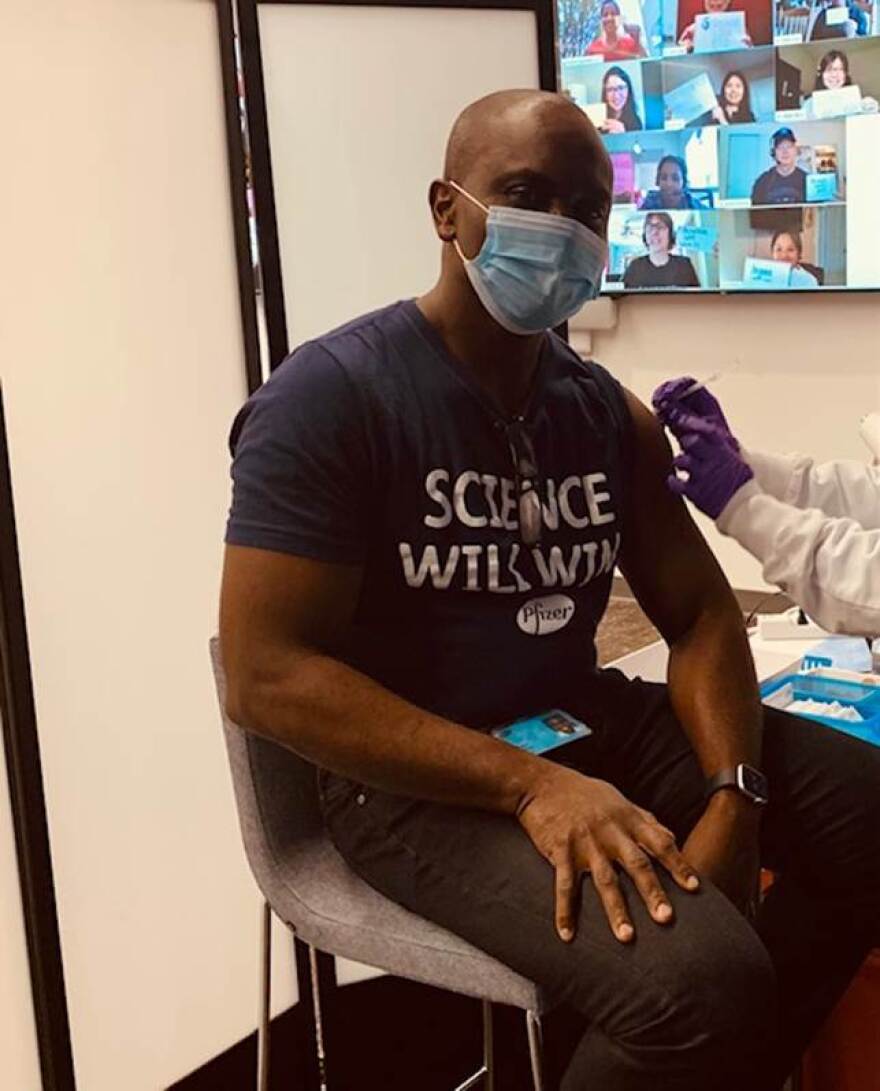
Lewis-Thompson: The Biden administration has asked manufacturers to speed up their process, and you mentioned that Pfizer is doing so. How much more vaccine can the company produce in the coming months? And will that allow us to reach herd immunity by the summer?
Mensah: I believe Pfizer had supplied over 40 million doses of the vaccine to the government. Our hope is that by the end of March, we would have 120 million doses delivered. And by the end of May, we will have 200 million doses delivered. That is really two months ahead of our schedule. And so I think we’ve just signed another deal for another $100 million, and I’m sure that will follow soon after that. And so there’s been significant effort, really. I mean, I think we started off slow, but we’ve made significant improvements, to try to get as much out there as possible. So, you know, I’ve heard the government says, you know, between us and Moderna, I believe there should be about 600 million doses by July. And hopefully if all of that is used, it will lead towards getting us to a stage where this will not be an issue.
Lewis-Thompson: There have been some mutations already with the coronavirus. How effective is the existing vaccine against coronavirus mutations?
Mensah: Thus far, we have done some in vitro test tube studies with our vaccine against the South African variant and the UK variant. And in both cases, we’ve seen a really strong immune response towards that. And that makes us believe that our vaccine is likely to work against those two variants. Also, real-world data from Israel and from the UK seems to indicate that our vaccine is very effective against the UK variant. So we haven’t started formal studies yet. But you know, I think as our CEO and many of our leaders have stated before, we are really working to set the foundation, the groundwork such that if there is any strain of the virus that has mutated, that we will be ready to develop a new vaccine even faster than we did the first one to work against it.
Lewis-Thompson: How do you think you’ll look back on this moment in time, many years down the road?
Mensah: Years from now, many people will still be talking about the pandemic. And to be able to say that in your own little way, in your small part, you helped the world to get to a stage where we overcame this pandemic, I think that is the pinnacle of a career in my mind. That you helped make the world better.








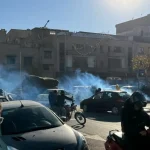




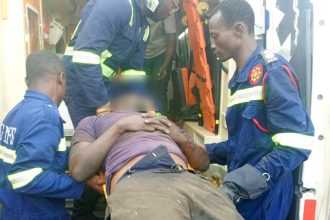
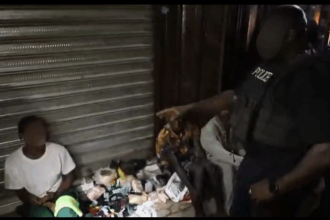


What a great guy. Well done.